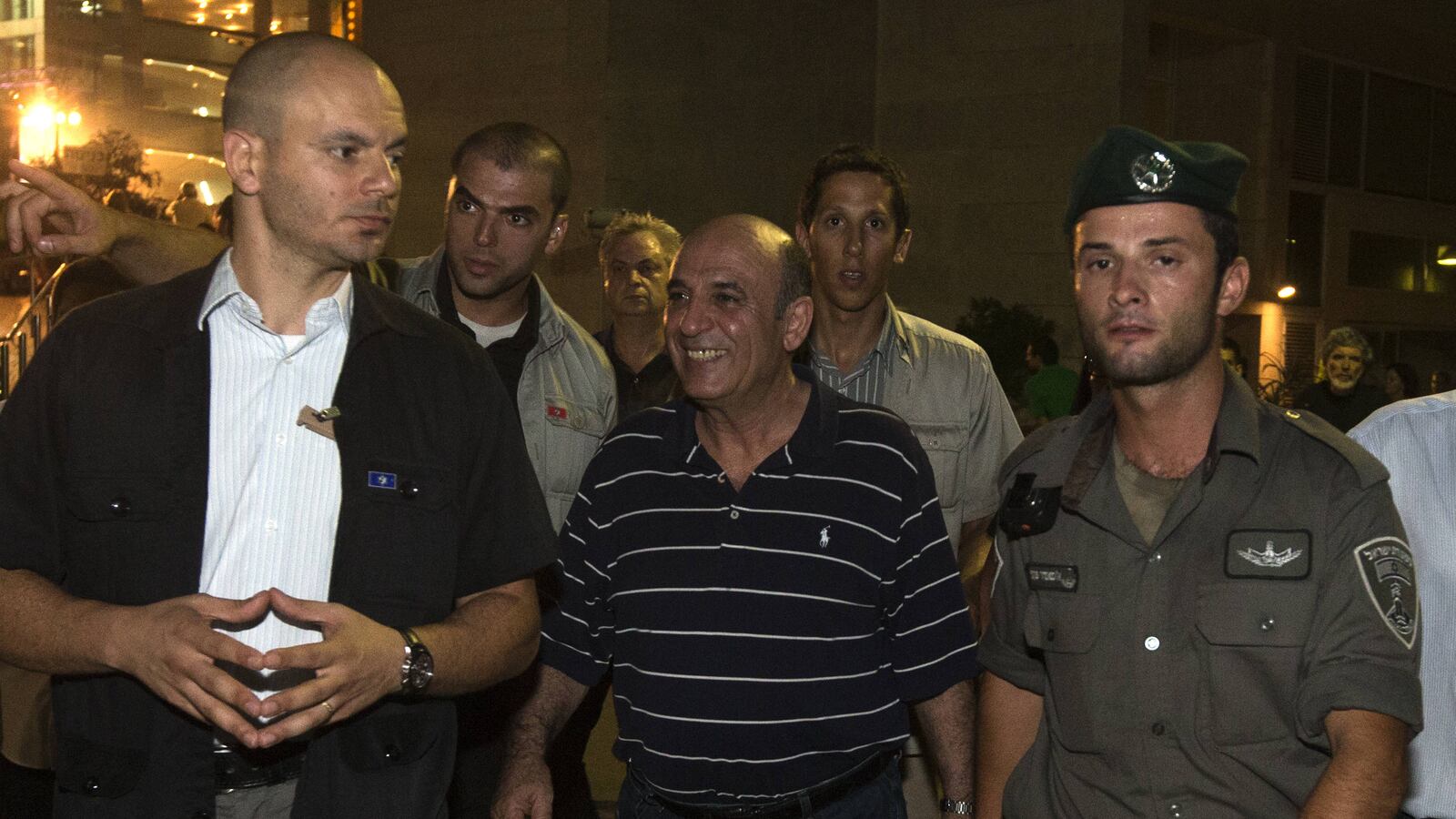As I wrote last time, Shaul Mofaz, the head of Kadima, had an unexpected opportunity to redefine the Israeli political map. All he had to do was resign from Netanyahu's government over the prime minister's decision to disband the Plessner committee last week. In one bold stroke, Mofaz could have claimed to be the instigator of a wildly popular proposed reform of Israeli conscription law, and by implication, the defender of a more nearly egalitarian conception of Israeliness that transcends traditional electoral tribes. He could have kept Kadima from oblivion, and kept alive the possibility of denying Netanyahu another Knesset majority.
The key to Mofaz's opportunity was that he would have had to be bold. He had to make a manifest demonstration of unwillingness to get drawn in to viscous coalition negotiations, which Netanyahu would manage; negotiations in which Plessner's voice, and the work of his committee, would be would be slowly muffled by ministers from coalition partners looking for new compromises and concessions; negotiations that ostensibly supported reform, but pushed implementation so far into the future that nothing of substance will have been gained.

Indeed, the public—and not just through the mainstream media—were voicing a hunger for decisiveness. By Friday, a mass demonstration was called for the streets of Tel Aviv. Had Mofaz resigned, he might have joined it in triumph, demanding simplicity, transparency, equality of obligation, and change.
Netanyahu understood this. Anticipating a debacle, chagrined by the coming demonstrations, he performed yet another u-turn, re-embraced the Plessner report, and promised to bring it to a Likud forum after the weekend. The worst thing Mofaz could have done was temporize, allow Netanyahu to form yet another committee and still appear the change agent, the spokesman for an egalitarian principle all know the Likud cannot fulfill without jeopardizing its relations with historic ultra-Orthodox partners and anti-Arab parties.
Well, Mofaz did the worst thing he could have done. He refused to resign, but signaled his willingness to play on Netanyahu's court. Predictably, he showed up at Saturday night's demonstration and was roundly booed. Sunday morning, on cue, and as if Netanyahu had not already disbanded the committee, the Likud showily adopted the Plessner findings, though with modifications, adding a tougher line on Israeli Arabs to please Avigdor Lieberman (though the latter announced he would oppose a law based on Plessner's principles). Mofaz also agreed to a new committee to which Plessner would be appointed, and in which Likud would be represented by hard-liner Moshe Yaalon. They say they will report out a new bill in a few days. In any case, Mofaz appears to have hit the tar-baby between the eyes.
Mofaz will brag that it was his, and Kadima's, initiative that should be credited with bringing revolutionary change. But he merely set the table for Netanyahu’s machinations and hastened Kadima's demise. Netanyahu is already taking the credit for change, even as he is preparing a process that will impede a public conversation, and legislation, in which real change may be entertained. I argued here before that, in adding Mofaz to his coalition, Netanyahu gave himself more room to play off Global Israel forces against Greater Israel ones. The point is, it is Netanyahu who will remain in control. “Mofaz is not an Alpha-animal,” a columnist friend of mine lamented.
Remember, one quarter of Israeli first graders are in Orthodox or ultra-Orthodox schools, and another quarter are Arab. Resignation would have gestured toward an electoral fight for civil society that is not just plural but pluralist, in which ultra-Orthodox would not be materially privileged and segregated, and Arabs would not be excluded and legally discriminated against. If reform is skewed to bring more ultra-Orthodox into service, but keep Israeli Arabs on the margins, its most lasting effect will be to reinforce Greater Israel nationalism in the army, and alientation in largely segregated and boxed-in Arab towns.
Everybody understands it could take a generation (and, at least some understand, a rekindled peace process with Palestine) to bring this civil society into relief. With Mofaz folding himself back into the bosom of the Likud, it is hard to see just what change is getting started.





